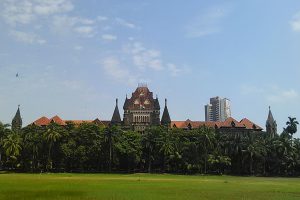Bombay High Court: M.G. Giratkar, J., while allowing an appeal filed against the finding of Railway Claims Tribunal, held that,
“Person who consumed alcohol in less quantity, may control himself. But who one who consumed in larger quantity may not be able to control and therefore, scientific reason is to be there to come to a proper conclusion as to whether the person consumed certain quantity of alcohol.”
Appellant while travelling by a passenger train fell down and came under the running train as he was sitting on the door of the train due to heavy rush inside the boggy. Appellant in this incident lost his legs.
In view of the above, appellant filed a claim petition stating that he was a bonafide passenger and an untoward incident took place as defined under Section 123(c) of Railways Act, 1989.
Railway claims tribunal recorded that the appellant was not a bonafide passenger as he was without any journey ticket and was under the influence of liquor that is why the accident took place. Therefore, the railway was not liable to pay any compensation as it is covered by Exception 124-A(d) of the Railways Act.
Hence, the present appeal was filed.
Ms Dhande, Counsel for the appellant submitted that there was no evidence to prove that the appellant was in heavy intoxication and therefore, he could not control himself from falling. There was no blood test report by the Chemical Analyzer.
Further, N.P. Lambat, Advocate for Respondent submitted that as per the evidence of the Doctor, appellant was under the influence of liquor.
In the present appeal, appellant lost his legs, one leg above knee and one leg below knee, in such situation; he might have lost the ticket.
Untoward incident as defined in Section 123(c) of the Railways Act, Railway Claims Tribunal recorded its finding that incident took place, due to negligence of claimant. He was under the influence of liquor and could not control himself from falling down the train.
With regard to the examination of blood sample, it is important that the procedure that is well established for testing alcohol in the blood is followed. Whenever any person/accused is charged for the offence under intoxication of alcohol, blood sample is to be taken by Medical Officer, sample is to be sent to the Chemical Analyzer and after the receipt of report, Court may come to a conclusion that whether he was under influence of liquor or not.
In the present case, the evidence to show that the injured was under influence carries no medical or scientific evidence on record and without the same it cannot be said that the appellant was under the influence of liquor.
Thus, Railway Claims Tribunal wrongly recorded its finding and therefore the impugned judgment is quashed and set aside. Respondent is directed to pay compensation of Rs 8, 00,000. [Ankush v. Union of India, 2020 SCC OnLine Bom 321, decided on 17-02-2020]

